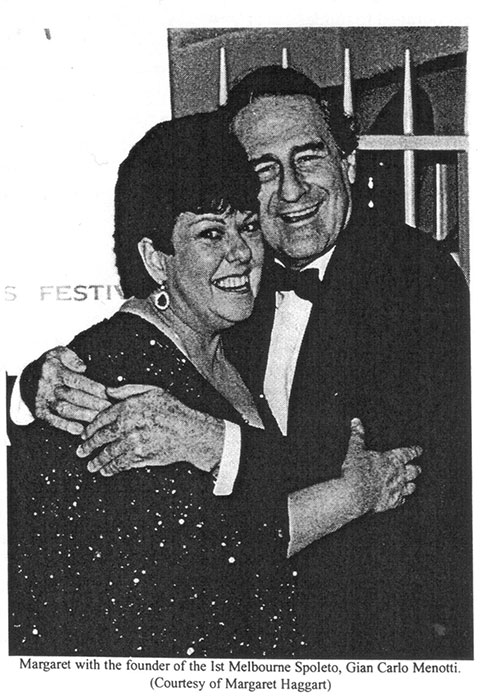Panel 7: The Arts – There are many women in this part of town contributing to the arts
Ada Cambridge
Ada was born in 1844. She was a self-educated woman of the late 19th century who had a career as a writer. She lived in Williamstown for 25 years and was the wife of a Church of England minister. She used Williamstown as the basis for some of her writing. In a period when women were not encouraged to think or act for themselves, she was determined in her efforts to achieve credibility as a writer. She believed that women should have lives of their own, be economically independent, be treated with dignity and respect and have autonomy over their own bodies. Ada focussed on the themes of love and marriage in her writings. She examined the unreal expectations placed on it by both sexes, the pressures played by family and society, and the difficulty of making a free choice.
‘Oh, you must get rid of those prejudices,’ she retorted, while allowing herself to be gently pushed to windward of a democratic pipe.’
‘A woman is a man’s equal, and able to meet what comes just
as well as he does. The day is past when she needs to be taken
care of by her husband or anybody.’
‘No, it isn ‘t. Not a bit of it.’
‘Oh yes, Noel. Now don’t be an antiquated Philistine if you can
help it…’
(from ‘A Marked Man by Ada Cambridge)
There was enough to take them a little way -just far enough to show them Williamstown transfigured in a carmine sunset, between the golden water and the heavenly sky – beautiful as Venice of one’s dreams in that beautiful hour, in its fairy veil of pinky-milk mist – a picture that Adam had never appreciated
before.
(Fidelis by A.Cambridge, 1895, from The Imagined Off, Arnold 1983)
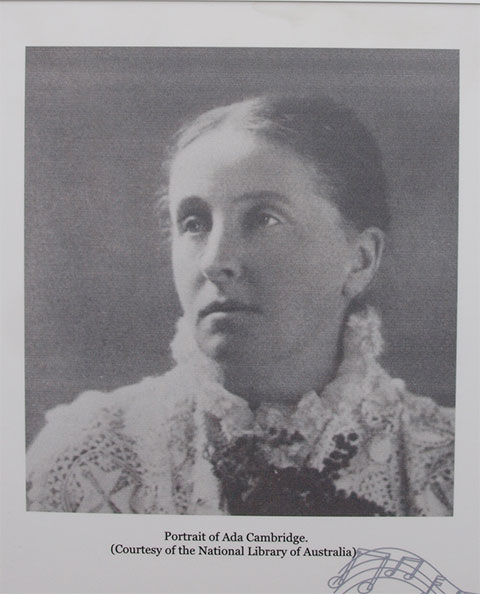
Donna Jackson
Donna has been a strong force in innovative art projects in the western suburbs. She conceived and developed the idea of the Women’s Circus and was its first artistic director. The Circus has been internationally acclaimed through its invitation to attend the United Nations Fourth World Women’s Conference in Beijing in 1995. The Women’s Circus is a unique feminist theatre which creates a positive environment where women work physically to challenge and reclaim their own bodies and where it is acceptable to be themselves. The circus celebrates the culture of difference between women. Donna has also been Director of the Maribyrnong Festival. She also produced her play ,‘Car Maintenance, Explosives and Love’ which she performed at the Edinburgh Festival and around Australia as well as other artistic projects. She sees beauty in industrial forms.
|
When I was at school. I cannot remember the whole lesson but what really turned my head around was her [teachers] statement : ‘Have you noticed that most of the positions of power in our society seem to be held by men ? It is a misapprehension to think that feminism can’t be fun … people paying to see a piece of feminist theatre that they might ignore if I chanted it in their face at a demo.
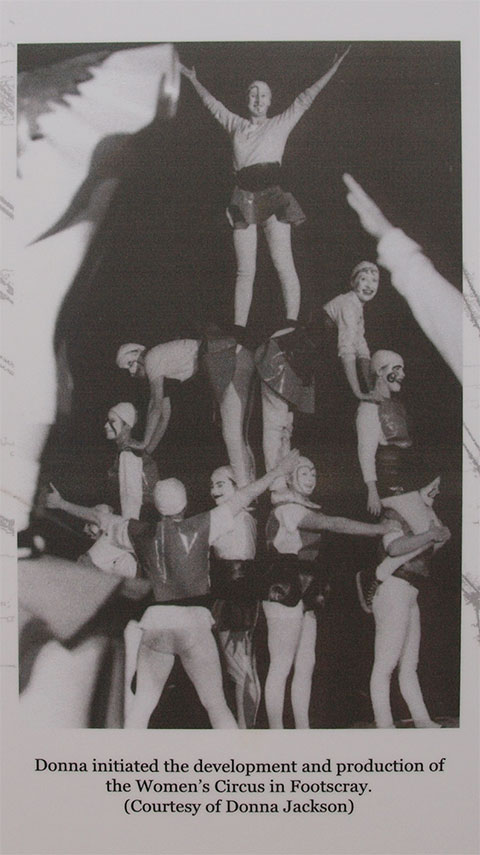
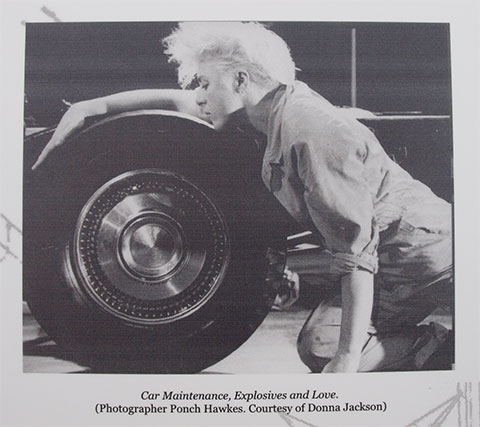
Jean Webb
Jean Webb shared her gift of music with the community of Williamstown for many years. She also spent approximately 30 years as a community worker at the Williamstown Youth Centre. For over 40 years, she played the piano for school choirs, calisthenics, Highland Dancing, ballet classes, ballroom dancing, community singing and for other performers in the area of Williamstown. Her greatest achievement was to compose and record ’30 Australian Musical Rhymes’ with Kiwi Pacific Records in 1971 which were songs about Australian animals for small children. In between songs, she wrote short stories and poetry.
After a courtship of five years, Tom proposed to me.
It was not one of those bended knee proposals. We were
walking to catch the tram to go Friday night shopping
when Tom said, ‘Would you like an engagement ring as
well as a glory box for your birthday?
I was moved to silence for the moment.
Then, ‘Can you really afford both, Tom?’ I asked.
‘Don’t you remember, I have my Militia pay?’
I must admit I had forgotten,’ I said.
‘It won’t be an expensive ring.’
‘That doesn’t matter, I’ve never wanted costly jewellery.’
(Extract from Jean Webb’s ‘So We Were Married’. From Remember The Forties.The Wednesday
Writers, Adult Education Association 1989)
(Courtesy of Iris Whitehurst)
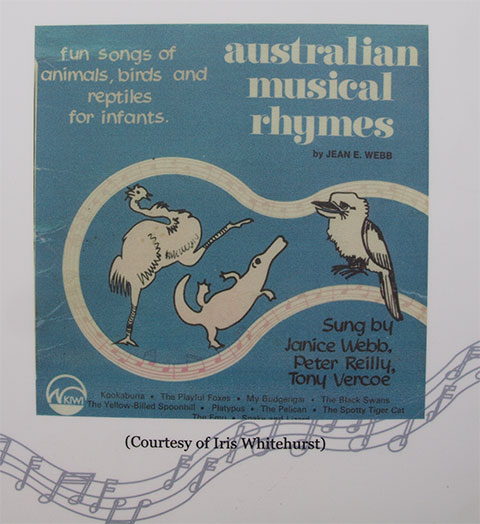
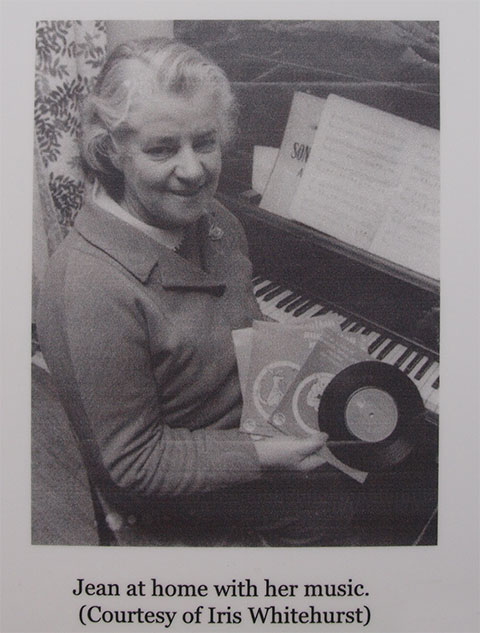
Margaret Haggart
Margaret is one of Australia’s most well known opera singers. She spent many years working overseas in lead roles with opera companies in England, Scotland, France, South America and the United States. On returning to Australia, she moved back to Footscray and, as well as continuing her operatic career, became involved in community arts in the west. She is now also a singing teacher assisting other talented people to develop their skills. She was the Chairperson of the Footscray Community Arts Centre which she saw as refreshing and an important development in the west. It gave people access to creative parts of their psyche and encouraged proper participation for the community. She was also the President of Gilmore College School Council, on the Board of the Maribyrnong Festival, and the Board of the Melba Conservatorium.
People in places like this [the west] think that the arts don’t belong to them.
When Margaret Haggart was three, she would sit on the counter of the West Footscray corner store owned by her godmother and sing the tunes her father taught her. He was a coalminer who had gone to the pits in his native Fyfeshire in Scotland at the age of 14. He arrived in Australia in the middle of the Depression with two shilling in his pocket.
(Gandolfo manuscript)
Margaret with the founder of the 1st Melbourne Spoleto, Gian Carlo Menotti (Courtesy of Margaret Haggart)
